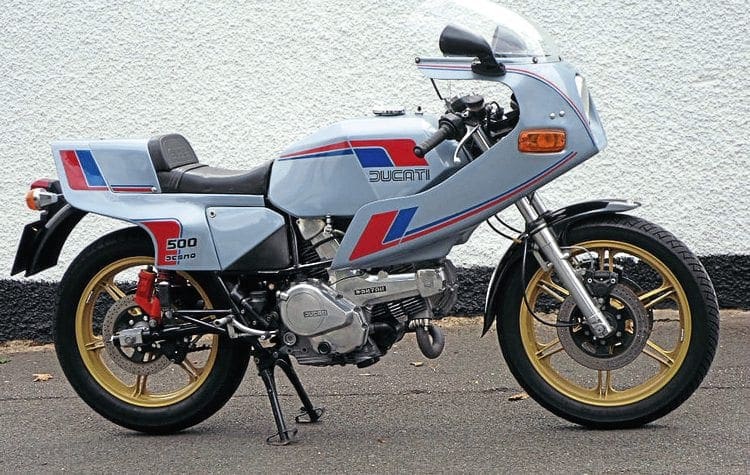When Fabio Taglioni ditched Ducati’s bevel drive, he took a big risk. Four decades later, it’s still paying dividends
WORDS & PHOTOS BY Richard Jones
“LOOK ON MY WORKS, Ye Mighty Motorcyclists, and Marvel!” is a phrase that might, conceivably, have occurred to Fabio Taglioni as he contemplated the machine he’d designed and which was first revealed as a prototype at Milan in 1979.
Enjoy more Classic Bike Guide Magazine reading every month.
Click here to subscribe & save.

Ing Taglioni had every right to be proud of what became the basis for Ducati motorcycles to this day. The sleek V-twin still attracts attention wherever it goes, and you don’t have to be a hedge fund manager to acquire one.
During the heady days of the 1970s, Ducati were heavily involved in road racing and the company’s success included Mike Hailwood’s win at the Isle of Man in 1978. Their Grand Prix 500 fared less well and was scrapped midway through the decade, although some aspects of its power plant clearly showed potential.
Meanwhile, in the real world of marketing, sales and profits, the firm’s fortunes were similarly mixed. The main drag was their range of ill-fated parallel twins which proved somewhat disastrous, perhaps because die-hard Ducati enthusiasts felt they were neither fish nor fowl, single or V-twin.
Read more in November’s issue of CBG



